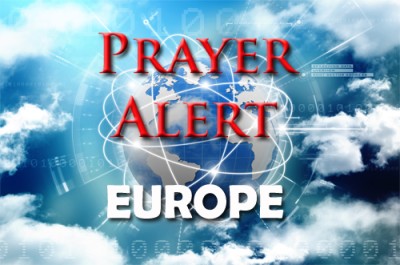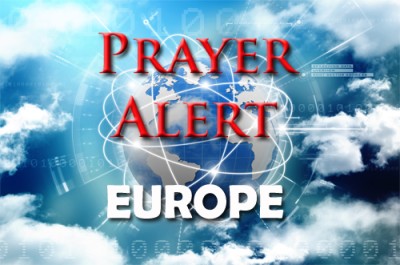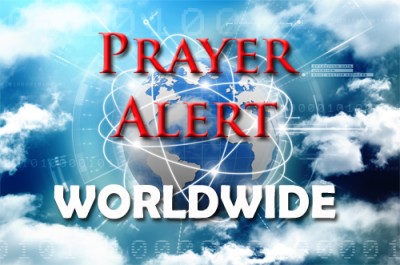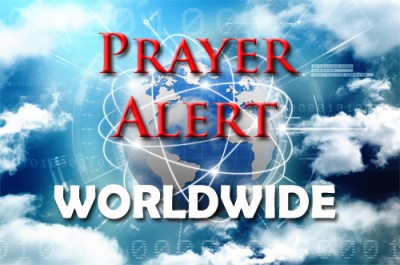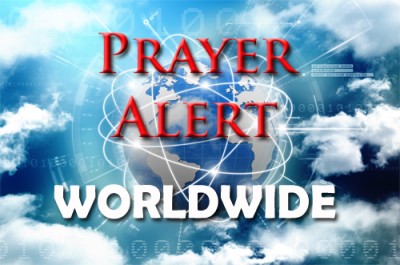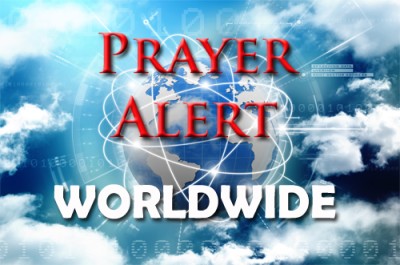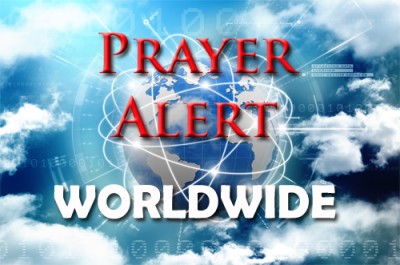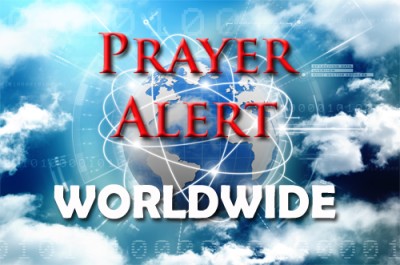France: Marine le Pen barred for five years
03 Apr 2025Marine le Pen has been barred from public office for five years due to EU fund embezzlement, jeopardising her 2027 presidential hopes. Though her four-year jail sentence (two years suspended) is pending appeal, the disqualification took immediate effect. Her party, National Rally (RN), appeared stunned and unprepared, holding emergency talks. While an appeal might overturn the ban, odds remain slim. Party president Jordan Bardella would be a potential successor, but not everyone is a fan, partly because he is only 29. Despite the ruling, Le Pen defiantly vowed to fight on, decrying the court’s decision as political. In the short term, the RN may gain support as the verdict reinforces their anti-establishment stance. Long-term, losing the charismatic le Pen may weaken their appeal. Meanwhile, in parliament she may abandon any pretence of cooperation, potentially destabilising prime minister François Bayrou's fragile administration.
Russia: Putin orders 160,000 conscripts
03 Apr 2025Vladimir Putin has ordered the conscription of 160,000 new troops between April and July, targeting citizens aged 18 to 30. The spring draft is part of Russia’s biannual conscription cycle; the previous autumn round brought in 133,000 recruits. The decree also confirms that those whose conscripted service has ended will be discharged. Last year, Russia raised the conscription age limit from 27 to 30, and now maintains a military force of approximately 2.4 million, with 1.5 million on active duty. Despite increasing manpower, Russia’s war in Ukraine continues to take a heavy toll. Western and Ukrainian estimates suggest over 768,000 Russian troops have been lost—killed, wounded, missing, or captured—since the invasion began in 2022. November 2023 marked a grim record with over 2,000 casualties in a single day. Ukraine, too, has suffered significant losses; Volodymyr Zelensky has recently acknowledged over 43,000 soldiers killed. The drawn-out conflict remains costly and unresolved, as both nations brace for further battles.
Myanmar / Thailand: devastating earthquake
03 Apr 2025A catastrophic 7.7-magnitude earthquake struck central Myanmar on 28 March, with the effects being felt as far away as Thailand and China. The death toll has already surpassed two thousand, with over 3,400 injured and many still trapped under rubble. Collapsed bridges and crumpled roads have delayed rescue efforts, and the secretive ruling junta has taken the unusual step of appealing for international assistance. In Mandalay, people are digging through debris with bare hands due to equipment shortages, while temperatures soar above 39°C (102°F). Communication breakdowns have forced rescue teams to rely on social media to locate victims. With rising temperatures and limited resources, rescuers fear more deaths are inevitable. Despite the odds, emergency workers remain committed to saving lives while grappling with overwhelming loss and unbearable heat.
Donald Trump’s announcement of a universal 10% tariff on all imports into the USA, beginning on 5 April, has sparked global alarm. An additional wave of steepened tariffs on approximately sixty nations, including China and EU countries, begins on 9 April. Trump claims the move will revive American manufacturing, calling it overdue payback for unfair trade practices. However, international leaders warn the tariffs will spark economic turmoil and a potential global trade war. Ursula von der Leyen called it a ‘major blow’, while China, facing a 54% total tariff on some goods, promised ‘resolute countermeasures’. Allies like the UK and Australia have urged restraint, while others, such as Brazil and Canada, plan reciprocal actions. Japan, Taiwan, and South Korea also condemned the move. Trump’s tariffs have rattled long-standing allies, confused diplomatic partners, and raised fears of escalating economic isolation. Critics argue that US consumers may bear the burden, with higher prices and increased global instability looming. For an opinion about what a huge gamble Trump is taking, see
Sudan: Khartoum after army retakes control
03 Apr 2025Khartoum, once Sudan’s bustling capital, now lies gutted after months of brutal conflict. The army’s recent victory over the paramilitary RSF is a turning point in a two-year civil war that has claimed at least 150,000 lives. Though the RSF’s grip on Khartoum has ended, uncertainty remains about what lies ahead. The city bears deep scars: the presidential palace, once a powerful symbol, has been looted and bombed, its grandeur reduced to rubble. Banks, ministries, and the airport are charred remnants. Yet amid the destruction, remnants of faith endure. At St Matthew’s Cathedral, damaged by nearby shelling and desecrated by RSF forces, the beautiful painted ceiling has survived. One soldier cleaning inside said his son was born on the first day of the war, but he still hasn’t met him. Despite atrocities committed by both sides and ongoing violence elsewhere, people in Khartoum rejoiced during Eid, briefly reclaiming hope in a city that has seen the heart of Sudan torn open.
For the second time in four days, Israel’s military have struck a Hezbollah target in Beirut. The precision airstrike, carried out by the air force, killed Hassan Ali Mahmoud Bdeir, a senior Hezbollah operative. According to Israel, he was orchestrating an imminent terror attack against civilians. The strike hit the top floors of an apartment building, killing at least three and wounding seven. Lebanese officials condemned the attack, calling it a violation of UN Resolution 1701 and an assault on Lebanese sovereignty. The president vowed to rally international support, while Hezbollah’s leadership placed responsibility on Lebanon’s government to respond diplomatically. The USA reiterated its support for Israel, claiming that it was operating in response to rocket attacks. Although Hezbollah denied launching the rockets, authorities have arrested thirteen suspects. The targeted strikes and political fallout highlight deepening regional instability and the increasing entanglement of Iranian-backed terror groups.
Taiwan: China’s large-scale military exercises
03 Apr 2025China has launched large-scale joint military exercises around Taiwan, involving its navy, air force, army, and rocket force, in what it described as a ‘stern warning’, just days after defence secretary Pete Hegseth, on his first visit to Asia, vowed to counter ‘China’s aggression’ and reaffirmed US support for Taiwan and regional allies. The manoeuvres simulated maritime assaults and blockades, deploying 71 aircraft and thirteen ships including an aircraft carrier. Taiwan condemned the actions as provocative and unjustified, maintaining high vigilance and deploying its own military assets. Analysts see the timing as symbolic, signalling discontent with the USA’s increased Indo-Pacific focus. China has intensified pressure on Taiwan, especially under president Lai Ching-te, whom Beijing labels a ‘separatist’. He has called on China to cease its intimidation, and the island’s population remains firmly opposed to Chinese rule.
A federal judge has blocked the Trump administration’s attempt to revoke Temporary Protected Status (TPS) for 600,000 Venezuelans living in the USA. The administration planned to end protections for 350,000 Venezuelans by 7 April and expedite expiration for another 250,000, potentially deporting them to a nation in crisis. However, district judge Edward Chen ruled that the Biden-era extensions must remain in place, citing racism and legal flaws in the decision made by homeland security secretary Kristi Noem. Chen condemned the use of negative stereotypes and found no evidence linking TPS holders to the criminal threats cited by the administration. He said that data showed Venezuelans under TPS as generally law-abiding, employed, and contributing positively to US society. Chen also criticised the administration’s rationale as lacking evidence and potentially legitimising Venezuela’s authoritarian regime through backchannel negotiations.
